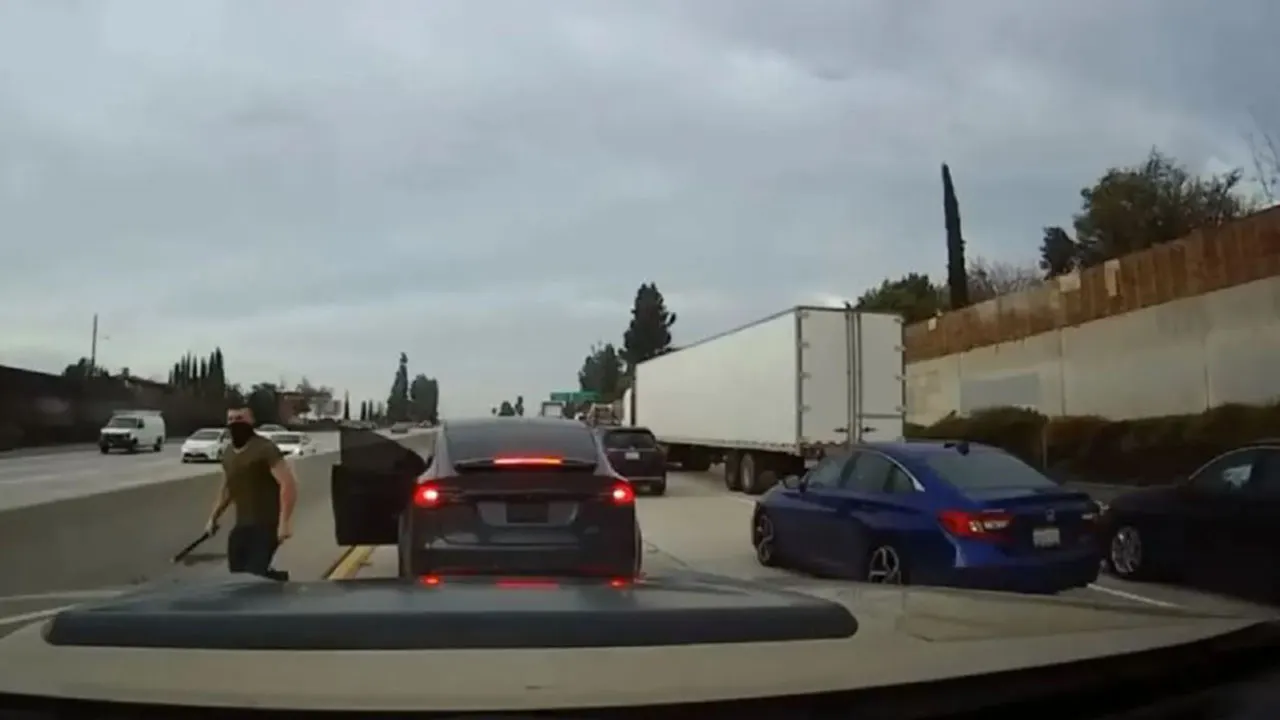Tesla Road-Rage Incident: Former Inmate Faces Assault Charges in Hawaii
A recently released inmate faces assault charges following a violent road-rage incident in Hawaii involving a Tesla. Witnesses report the man allegedly attacked a teenager and their mother after a traffic dispute, sparking debates about road safety and post-incarceration behavior. The altercation occurred last week on Oahu’s H-1 freeway, leaving the community shaken and authorities investigating.
Details of the Altercation
According to Honolulu Police Department reports, the confrontation began when the Tesla driver, identified as 34-year-old Marcus Keoni, allegedly cut off a minivan driven by a 42-year-old mother. Witnesses claim Keoni exited his vehicle, shouted obscenities, and physically assaulted both the woman and her 16-year-old son before fleeing the scene. Traffic cameras captured portions of the incident.
“The suspect displayed extreme aggression from the moment he stepped out of the car,” stated Officer David Yamada, the responding officer. “This wasn’t just a verbal exchange—it escalated into a physical altercation that left the victims with visible injuries.”
Suspect’s Criminal History Raises Concerns
Court records reveal Keoni served five years in Halawa Correctional Facility for aggravated assault prior to his release eight months ago. His parole officer confirmed Keoni had no prior traffic violations since reintegrating into society. However, psychologists warn that reintegration challenges may contribute to volatile behavior.
Dr. Elena Rodriguez, a criminal psychologist at the University of Hawaii, explained, “Former inmates often face immense stress when reentering society. While this doesn’t excuse violence, it highlights systemic gaps in rehabilitation programs—particularly for those with histories of impulsive aggression.”
- Hawaii’s recidivism rate: 43% within three years of release (2022 DOJ data)
- National road-rage incidents involving physical assault rose 17% since 2020 (NHTSA)
- Electric vehicle drivers are 14% more likely to report aggressive driving behaviors (2023 AAA study)
Community Reactions and Road Safety Debate
The incident has reignited discussions about Hawaii’s congested roadways and driver behavior. Oahu residents report a 22% increase in aggressive driving complaints since 2021, per city transportation data. Some argue infrastructure pressures exacerbate tensions.
“We’ve got tourists unfamiliar with roads, locals frustrated by construction, and everyone packed into two main highways,” said Kaimana Lee, a local rideshare driver. “It’s a pressure cooker out there.”
Meanwhile, victim advocates emphasize accountability. “The victims weren’t just random drivers—they were a mother and child,” stressed Maya Fernandez of Hawaii Safe Roads Coalition. “We need stricter penalties for road violence, especially when children are involved.”
Legal Proceedings and Potential Outcomes
Keoni currently faces second-degree assault charges and parole violation hearings. If convicted, he could serve up to 10 years under Hawaii’s enhanced penalties for repeat violent offenders. His public defender cites “undiagnosed PTSD from incarceration” as a mitigating factor.
Prosecutors, however, remain firm. “The defendant had multiple opportunities to de-escalate,” said Deputy Prosecutor Sarah Kaimana. “His choices endangered lives, and the consequences should reflect that.”
Broader Implications for Road Rage Prevention
Transportation experts suggest practical measures to reduce such incidents:
- Increased traffic enforcement: Hawaii currently ranks 49th in officers per 1,000 drivers
- Dashcam incentives: Proposed tax credits for collision-avoidance systems
- Driver education: Mandatory de-escalation training for repeat traffic offenders
Automotive analysts also note the unexpected role of vehicle type. “Teslas’ instant acceleration may unintentionally encourage aggressive maneuvers,” noted engineer Derek Simmons. “We need to study how EV performance impacts driving psychology.”
Moving Forward: Safety Over Stigma
While this case involves a former inmate, advocates caution against broad stereotypes. “Most returning citizens never reoffend,” said parole officer Jason Kaleo. “But we must address root causes—housing instability, untreated trauma—that increase risk factors.”
For Hawaii’s roads, solutions may require both systemic changes and personal responsibility. As the victims recover physically, the community grapples with larger questions about safety, rehabilitation, and what transforms a traffic dispute into violence.
Readers concerned about road rage incidents can access de-escalation resources via Hawaii’s Department of Transportation website. Early intervention training may prevent future tragedies.
See more CNN Headline


